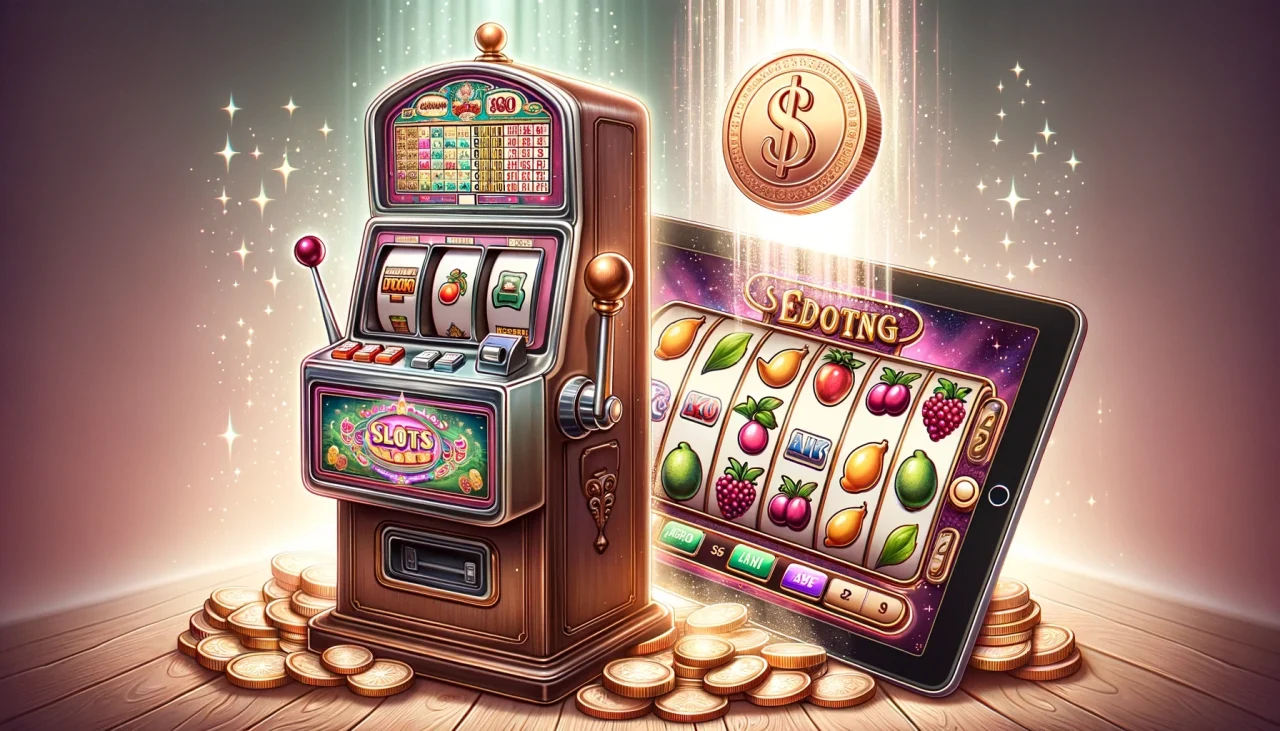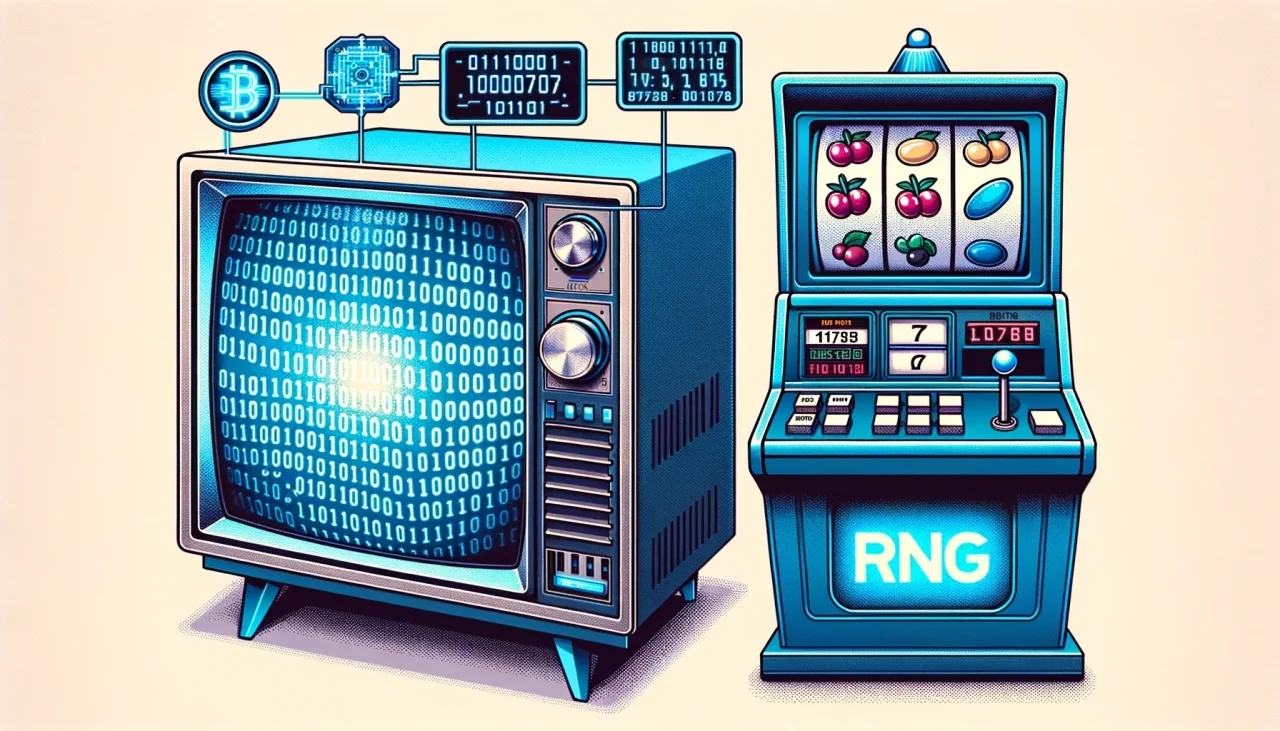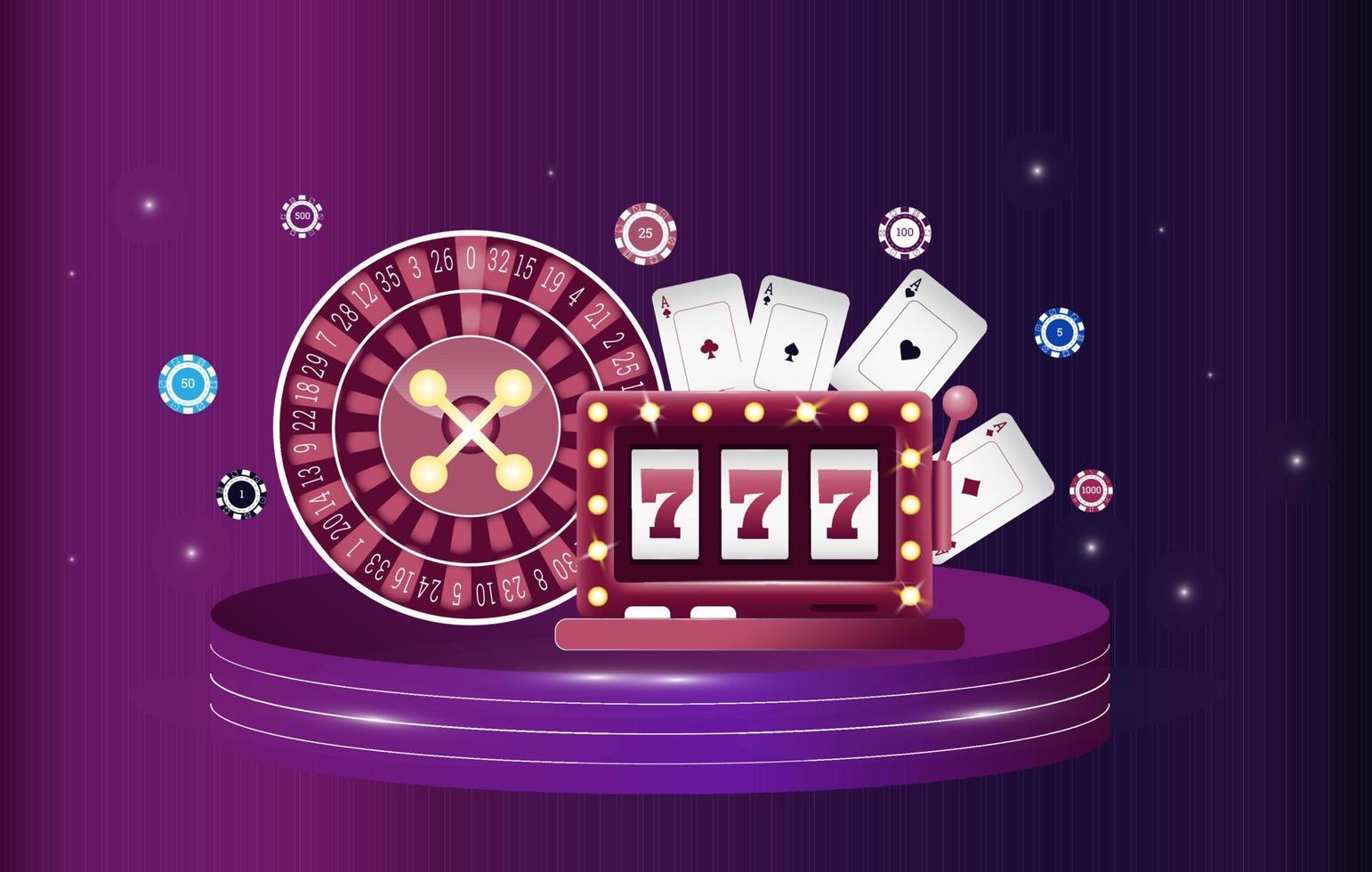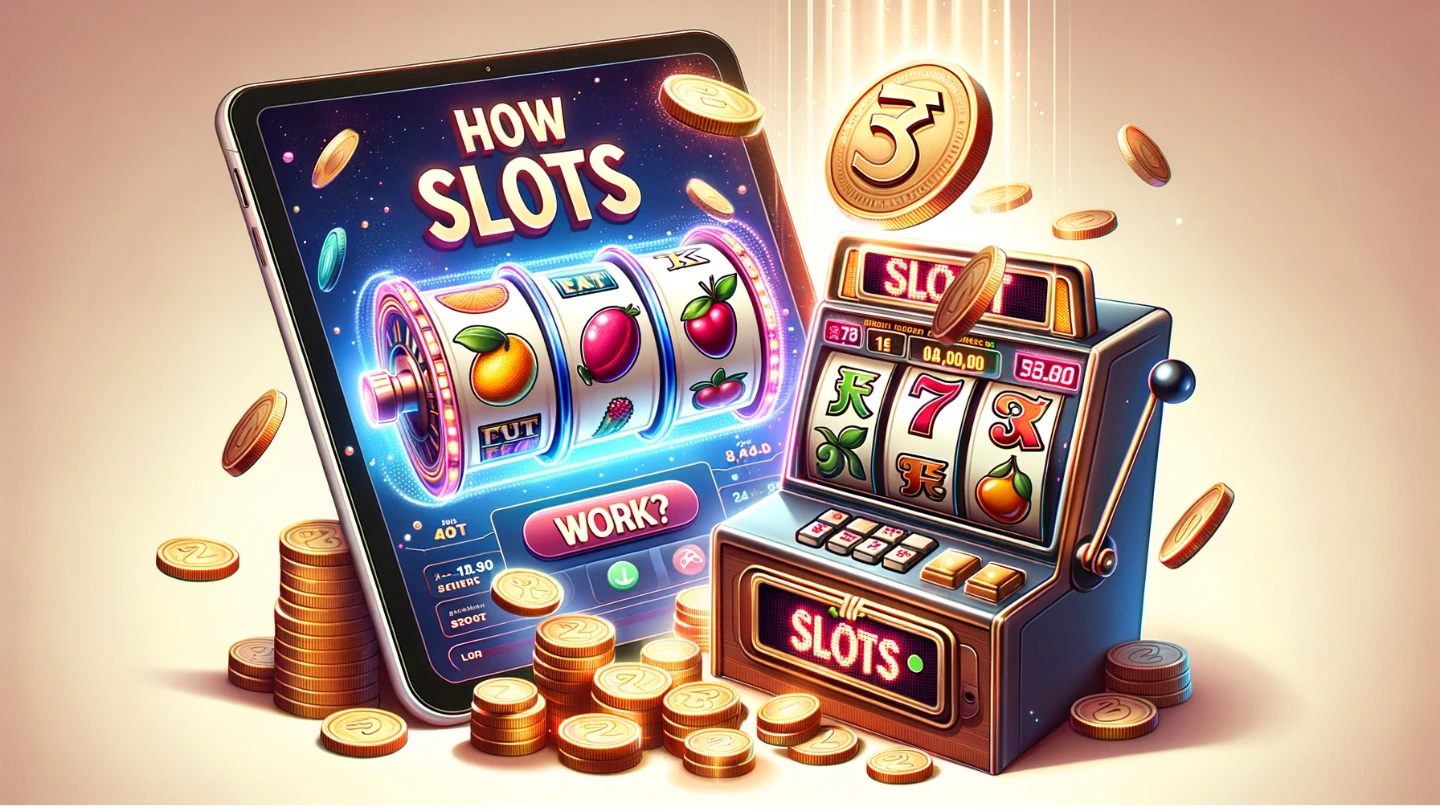How Slots Works? Slots Machine and Online Slot Explained
Both machine-based and online slot games are exciting real money games with the potential for significant winnings. But the question remains: how slots works?
Summary & Key Takeaways
Show200% Welcome Bonus | SPRIBE
200% Welcome Bonus | SPRIBE
- UPI, Paytm, gPay & PhonePe withdrawals
- The Biggest Bonuses in India
- Available in four different Indian languages
Understanding the Slots Machine: Basic Guide

How slots works is quite straightforward. Dating back to 1899 when Charles Fay designed the original machine, the process involves a player placing a bet and spinning reels adorned with symbols.
These reels come to a halt at random spots. If the symbols line up in a specific pattern, the player scores a win. The more unique the winning symbols, the larger the reward.
The potential rewards for different symbol combinations are listed in the game’s paytable.
Although today’s slots use computer-generated numbers to decide the stopping of the reels instead of a mechanical system, the basic concept remains unchanged.
Every trusted online casino game developer ensures the integrity of this randomness. So, understanding how slots works is fundamental for any dedicated slots player.
Online Variation: How Slots Works?
Online slots primarily use reels to show the outcome of each play. Even though these reels are computer-generated, the underlying game mechanics involve 3 to 5 sets of symbols, or virtual reels, that halt at unpredictable spots. If it’s effective and has been for years, why alter it?
Today’s online slots introduce numerous advanced features. These would be challenging to implement with physical reels. Features include expanding wilds, scatters, double chance, free spins, bonus rounds, and more.
How the Random Number Generator (RNG) Works?

All legit slot games share a common feature: the result of every round hinges solely on a number from a Random Number Generator (RNG).
“As you increase your bet amount, typically, the Return To Player (RTP) of your betting system rises. This is under the assumption that other betting system rules stay constant”.
This is the essence of how slots works. Here’s a simple breakdown of the process:
- RNG produces a random number.
- Mathematical structure on the game uses this number to decide the stopping points for the reels.
- The game stops the reels based on these positions and figures out the spin’s result.
- The player, who initiated the spin, sees the outcome.
The outcome of each round, whether a win or loss, is purely luck-driven. Past results, either your own or those of other players, don’t sway the outcome. It’s just the player against the RNG’s electromagnetic noise – pure chance at its core.
“The game’s result isn’t swayed by past outcomes, whether yours or those of other players. There’s no predictability involved.”
However, the RNGs in modern online casinos are specialized hardware devices that churn out random numbers using electromagnetic noise.
“Imagine an old TV with no signal, filled with a mix of black and white dots. A black pixel equates to 0 and a white one to 1. Capture a small section of this screen, translate the pixels into 1s and 0s, save it as a text file, and voila, you’ve got a random number.”
These RNG devices create thousands of such numbers every second. This means if you hit the start button a mere second later, you’d alter the game’s next outcome.
But, predicting whether this change will be in your favor is impossible, ensuring fairness in randomness.
Common Misconceptions About Slot Machines
How slots works is often misunderstood, leading to many myths. After breaking down the actual mechanics of fair slot machines, let’s debunk several prevalent misconceptions about slots.
1. Predictable winning patterns
This myth doesn’t hold up when you understand how slots works. Slots rely on genuinely random numbers.
The casino’s edge is integrated into the game’s math; there’s no need to introduce cycles into the equation.
Though you might notice periods where wins are frequent or scarce, these are mere manifestations of randomness. Importantly, they’re not predictable patterns.
2. Slot won’t pay out a large win
This misconception possibly originates from the era of individual slot machines that paid winners directly.
Even then, it wasn’t true. If a player’s winnings exceeded the machine’s payout capability, the casino staff compensated the difference.
Today’s slots are linked to central servers, and payouts are managed by casino staff or even straight to the game developers system.
The physical cash within a machine isn’t a concern. The randomness generated by the slot’s RNG remains consistent, break this myth.
3. Automatic spins result in lower wins
For anyone versed in how slots works, these myths are baseless. The game’s mathematical framework and the fairness of the RNG are unaffected, whether you’re using auto-play, the lever, or the spin button.
How Slot Machines Are Set Up?

Understanding how slots works involves looking behind the scenes to see the programming and communication between different servers.
While operating a casino and creating engaging games necessitate distinct skills, it’s clear that players gravitate to specific games repeatedly.
This consistent player preference is perhaps why some companies solely focus on crafting casino games.
A classic example is the Starburst slot, found in numerous casinos, developed by an independent entity called NetEnt. Here’s a simple breakdown:
- The casino begins your game session.
- While playing, your browser connects directly to the game provider’s servers, not the casino’s.
- The random number and game results are determined by the independent game provider.
The casino only verifies your wagers and is informed of your wins by the game provider.
This setup has significant implications.
If you’re on a losing streak in a game crafted by a reputable provider, it’s likely just a bout of bad luck.
Even if you’re playing a beloved game at a lesser-known casino, the game’s fairness remains intact, thanks to the game provider.
However, it’s crucial to ensure the casino is reputable for payment purposes, especially for significant wins.
Let’s further break down the sequence of how slots works when a player initiates a spin:
- A player clicks the spin button in a slots game within their browser.
- The game sends a “spin” request to the game provider’s server.
- This server computes the bet amount and asks the casino’s server to deduct thenecessary funds for the spin.
- The casino’s server confirms the deduction.
- The game provider’s server requests a random number from its RNG.
- The RNG provides an unbiased random number.
- Using this random number, the game provider’s server simulates the virtual reel spin and determines the game round’s result.
- The game provider’s server then prompts the casino’s server to credit any winnings to the player’s account.
- The casino’s server credits the win and sends a confirmation.
- The game, running in the player’s browser, receives and displays the round’s result through animation.
- Impressively, this entire process typically wraps up in less than 200 milliseconds.
Beyond the RTP and Variance on Slot Game

How slots works often revolves around two critical mathematical aspects: RTP and volatility (or variance).
These two factors majorly dictate the frequency and the amount of your winnings. Let’s break down what it suppose to be, to clarify their roles:
What Does Return to Player (RTP) Mean?
In essence, RTP is a measure that provides an average estimation of the money players will get back from their wagers over a longer span of gameplay. Breaking down the term “long-term statistical rate”, think of it this way:
“If a slot game has an RTP of 96%, and you were to play 1,000,000,000 rounds at ₹1 each with a starting balance of ₹1,000,000,000, by the end of these rounds, you’d likely have around ₹960,000,000 remaining.”
It’s important to note that in a short-term gameplay, say a few hundred rounds, your return could swing drastically, ranging anywhere from 30% to a whopping 1000%.
However, as you play more rounds, your returns begin to align more closely with the slot game’s stated RTP.
That’s the reason why we discuss huge numbers when illustrating RTP. Online slots typically offer an RTP ranging from 96% to 98%.
Given its simplicity as a single numerical representation, RTP has become a sought-after metric for online slots.
Most renowned game providers specify the RTP for each of their slot games. Furthermore, RTP serves as a handy tool for various basic calculations.
“For instance, it can help you determine the probable loss amount from a bonus while trying to meet its wagering requirements.”
Understanding RTP is crucial in grasping how slots works and strategizing your gameplay.
Breaking Down Volatility in Slots
Understanding how slots works involves delving into more than just the basics like RTP. Another essential aspect to consider is the game’s volatility. Let’s break this down with an analogy involving roulette:
- If you bet on a color, your potential win is double your bet, and the chances of winning are fairly high (18 out of 37 rounds).
- If you bet on a specific number, the potential win is much larger, 36 times your bet, but the chances of winning are significantly lower (1 out of 37 rounds).
From the above, it’s evident that the volatility of roulette varies between 2 and 36, based on your chosen bet. In essence, higher volatility indicates larger individual wins but a reduced frequency of those wins.
This means there’s a greater risk – you might achieve bigger payouts, but there’s also a higher chance of depleting your budget more rapidly.
Recognizing and understanding the volatility of a game is crucial when figuring out how slots works, as it influences your gaming strategy and risk appetite.
1. Ways to Figure Out Slot Volatility
Understanding how slots works requires a grasp of volatility. In slots, outcomes vary due to numerous winning combinations. Game providers categorize slot volatility as “low”, “medium”, or “high”, giving players a rough idea of risk. Precisely determining a slot’s volatility involves analyzing its structure and special features, which can be complex. High volatility slots offer larger returns, allowing excitement at lower bets, potentially balancing out a slightly lower RTP. Among casino games, slots are the most unpredictable, but their unpredictability can be more rewarding than other games with consistent RTPs
Claim up to ₹15,000 Welcome Bonus Now
Claim up to ₹15,000 Welcome Bonus Now
- Easy Sign-Up and Deposits
- Win 1000x Bet Amount!
- 300% Welcome Bonus up to ₹10,000
2. Tips to Adjust a Slot’s Volatility
Grasping how slots works includes understanding how to tweak slot machine volatility. Here are methods to amplify it:
- Use the double up feature (black/red). While the RTP stays consistent, you can elevate the game’s volatility by gambling until you achieve a significant win.
- Adjust to 1 payline and boost the bet for that line. While the likelihood of securing a win on that line diminishes, potential wins are much greater. Test this approach with our free online slots in demo mode.
How Slots Works These Days?
In summary, the concepts behind slots games remain the same to this day. The RNG aspect ensures the games are both fair and fun. Having a deep understanding of how slots works is a must, to achieve the best betting experience.
All You Need to Know About On How Slots Works
Is there a trick to playing slots?
No. Slots use a Random Number Generator (RNG) to ensure each spin result is random. While you can manage your bankroll or understand a game’s RTP and volatility, there’s no method to guarantee consistent wins. Misconceptions about predictable patterns or certain play modes affecting outcomes are incorrect.
Are slots 100% luck?
Yes. The outcome of every round in slots, whether win or loss, is based on luck. Past outcomes do not influence future results, and every spin operates independently due to the RNG.
How can I win at slots?
Slots outcomes are based on luck, but you can enhance your experience by:
- Learning the game’s RTP to know the potential average returns over extended play.
- Grasping the game’s volatility to decide on a gaming strategy.
- Managing your funds wisely.
- Trying slots in demo mode first.
- Avoiding misconceptions about slots.
How do slots make money?
Slots earn money via the casino’s edge built into the game. The difference between 100% and the game’s RTP (like a 4% difference from a 96% RTP) represents the casino’s profit margin. Over numerous spins and players, this edge ensures profitability for casinos.







